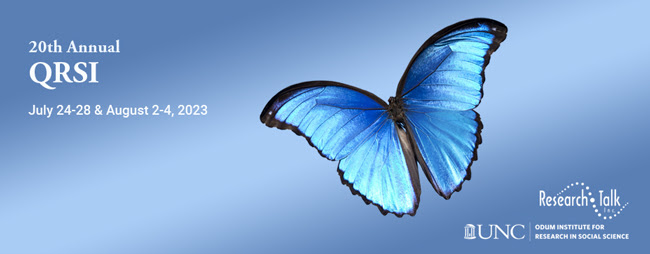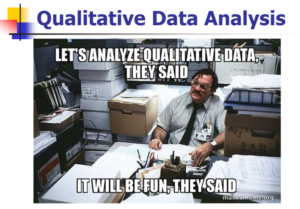post by Pavlos Panagiotidis (2022 cohort)
My placement with Makers of Imaginary Worlds took place in various locations around Nottingham and remotely.
Starting date: 25/06/2023
End Date: 25/09/2023
During the past summer, I had the opportunity to participate in a three-month placement with Makers of Imaginary Worlds, a company that combines art and technology in innovative ways to create experiences for children and families. I worked on a number of projects during my time there, which helped me gain a better understanding of the practical implications of engaging audiences in mixed reality experiences, as well as the potential for research in the intersection of HCI and performance.
During my placement, I was presented with several opportunities to work on projects that involved immersive technologies, approaching audience engagement, and experimenting with prototype technologies for performance. These projects, located in various parts of Nottingham, posed diverse challenges that made the experience exciting and solidified my interest in the intersection of art and technology. This placement helped me refocus my research objectives towards areas likely to have practical impacts. These areas include developing innovative methods to assess audience engagement through computer vision and creating methodologies to evaluate the aesthetic implications of emerging technologies in performance-making.
One project I worked on involved the qualitative analysis of interviews with visitors to the “Home Zero” art installation. This installation was designed to encourage participants, mainly children and families, to envision a more sustainable future through a playful, interactive experience that used paintings from the National Gallery as a starting point. I cleaned the data and performed a preliminary analysis of interview transcripts to study how audiences interacted with and perceived the installation. My analysis showed evidence that visitors enjoyed engaging with tangible interfaces and hands-on interactions, which made the experience more engaging and effectively supported the learning process. Later that year, I co-authored a paper that transformed some preliminary insights into a study on the significance of tangibility in designing mixed reality experiences about environmental sustainability for children. I also had the opportunity to contribute to another academic paper based on “Home Zero”, which aims to provide bridges between the disciplines of theatre and computer science, exploring how these fields can converge to enhance participatory design.
An example of an interesting field observation was when a child participant in HomeZero used the “Imagination Scanner,” a device that supposedly measured the participant’s imaginative capacity. The child’s excitement was palpable when they scored higher than their parents, and the automated system rewarded them by opening the door to the next part of the installation. This moment highlighted how design and technology could invert typical familial hierarchies, providing a unique and empowering experience for the children involved.
During my placement, I also had the opportunity to engage closely with “The Delights,” an event that blended dance, sensory activities, and interactive installations to captivate its young audience at the Hoopla Festival, which was held in Nottingham’s local parks. My role involved interviewing families to document their experiences and synthesising this information into a detailed report for stakeholders such as the festival committee. This report not only showcased the high level of audience engagement but also underscored the event’s impact on community connection, child development, and the creative transformation of public spaces. I gained valuable experience in the process required by funders to collect and analyse data and report the outcomes of publicly funded events to justify subsidising an art-making company.
Evidently, the event transformed perceptions of local parks from mere recreational spaces to vibrant community hubs that facilitate child development, artistic expression, and community bonding. Interviews with parents revealed significant shifts in how these spaces are viewed and utilised, emphasising the parks’ new roles as sites for creative and interactive family engagement. Notably, parents appreciated how the event encouraged their children’s expressive skills and social interactions, with many noting increased confidence and communication in their children due to participating in the activities offered. The experience showed me the importance of audience insights in designing experiences. Understanding audience behaviour, expectations, and engagement can be crucial in creating successful events. My placement’s most technically challenging aspect was working on a computer vision-based audience participation assessing prototype. This project aimed to collect and analyse data regarding audience behaviour in interactive installations and explore the possibilities of using computer vision technology to refine interactive artistic experiences.
During my placement at MOIW, I gained a deeper understanding of how my backgrounds in theatre, physics, and computer science synergistically apply to mixed reality experiences. The diverse approaches include assessing audience engagement, designing for optimal user experiences, performing qualitative and quantitative data analysis, and exploring the potential of physical and technological prototypes in performance. While being a “jack of all trades and master of none” can pose challenges in pinpointing one’s exact skills, it also allows for unique involvement and contribution to artistic projects.
Further reflecting on interdisciplinary approaches, I recognised that while the potential for convergence between computer science and theatre is evident, the independent evolution of these disciplines has occasionally made collaboration challenging. However, this placement reinforced my belief in the value of interdisciplinary research and the potential to bridge gaps between these fields, making designing each mixed reality performance a valuable step toward this integration.
In general, my placement with Makers of Imaginary Worlds was a valuable experience that enhanced my understanding of immersive technologies and audience engagement in a real-world setting. It solidified my commitment to exploring the intersection of art and technology, paving the way for my future work in the field. Thanks to my placement, I developed a deeper understanding of the intersection of HCI and performance, both academically and practically. I learned that collaboration and interdisciplinary research are crucial in creating and studying mixed reality events. Mixed reality requires a blend of skills and knowledge, including art, technology, and design. Therefore, processes that support interdisciplinary collaboration are essential in creating innovative mixed-reality experiences.


